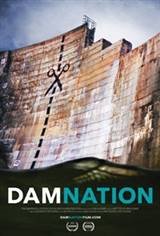
DamNation
DamNation
Hungarian filmmaker Bela Tarr began his career making social realist domestic dramas, similar to the work of John Cassavettes. The feature before Damnation, Almanac of Fall, showed Tarr moving toward a more visually stylized form of filmmaking. With Damnation, the first of his collaborations with novelist Laszlo Krasznahorkai, Tarr adopts a formally rigorous style, featuring long takes and slow tracking shots of the bleak landscape that surrounds the characters. Shot in black-and-white, Damnation tells the story of Karrer (Miklos B. Szekely), a depressed man in love with a married woman (Vali Kerekes) who sings at the local bar, Titanik. The singer has broken off their affair, despite her profession of love for him. She wants to improve her life. She dreams of becoming famous, but she herself embodies all of Karrer's hopes and dreams. Karrer is offered smuggling work by Willarsky (Gyula Pauer), the bartender at Titanik. Despite his lack of other prospects, Karrer tries to haggle with Willarsky over his take. Karrer eventually decides to offer the job to the singer's husband, Sebastyen (Gyorgy Cserhalmi), who has fallen on hard times. This gets the husband out of the way for a while, but things don't go as Karrer plans with the singer. There's a big, drunken dance, which everyone in town attends (though one demented soul prefers to dance maniacally in the rain outside). Afterwards, one betrayal falls upon another, leaving Karrer in despair, alienated from all of humanity. This film laid the groundwork for Tarr's next collaboration with Krasznahorkai, Satantango, a seven-hour film which they spent years developing, and which many consider Tarr's masterpiece.
| Cast: | György Cserhalmi, Miklós Székely, Vali Kerekes, Gyula Pauer, Hedi Temessy |
| Director: | Béla Tarr |
| Producer(s): | Joszef Marx |
